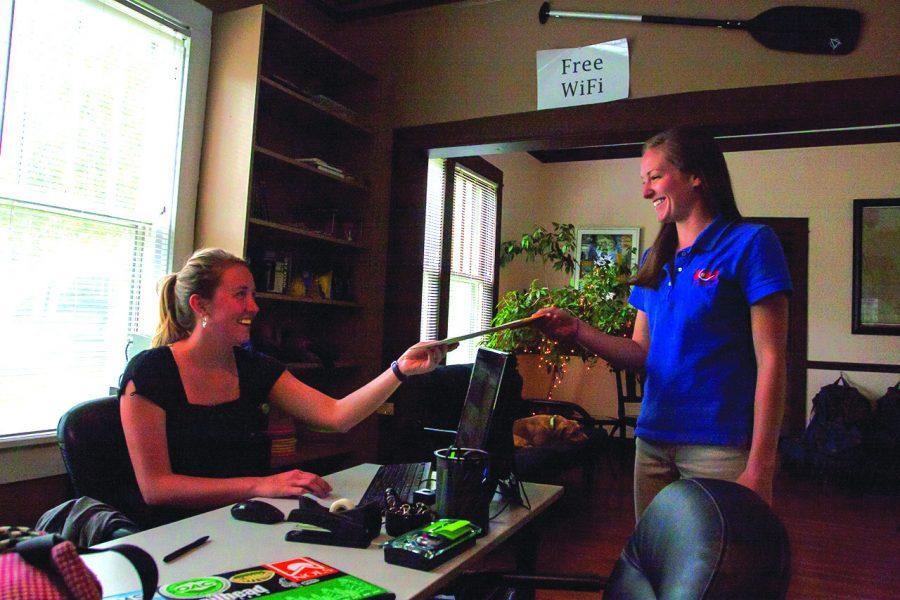Students use jobs to network on, off campus
June 12, 2013
Transitioning from high school to college can be a Herculean effort for many freshmen. There are so many new responsibilities to take on; one is deciding whether or not to get a job.
Freshmen who intend to get a job their first semester are advised by their peers to come prepared.
Thomas Gehrling, a senior, said that if freshmen are serious about getting an on-campus job, they need to “get on the ball early” by having a resume ready and asking around about jobs before move-in day.
Gehrling said networking, especially with professors, is crucial to this process, so students should get to know people and let them know they are actively looking for work.
Career counselor Jennifer Smith said the best way to find out about available jobs, along with how to go about networking, is using LionJobs. This service can be accessed from the Career Development page at www.una.edu/career and provides current job listings on campus.
With this service, students can create a username and profile, upload a resume and get it approved, and apply for jobs. The Career Planning and Development Center also offers resume writing assistance and other professional advice free to students.
There are numerous types of jobs on campus available to students of all skills and experiences. For more organized students, working in the library or computer lab might be a good idea; if you’re more athletic, look for an opening in the Student Recreation Center as a personal trainer.
Smith said to check LionJobs constantly, especially at the beginning of the semester. More jobs open up around this time as upperclassmen graduate.
On-campus jobs provide numerous opportunities for students: namely, time to network and meet staff and other students. Kindling these relationships will be beneficial later in life, Smith said.
On-campus jobs come with a few downsides as well.
Many employers prefer to hire upperclassmen, requiring freshmen to work harder for the jobs.
Students with on-campus jobs are limited to 20 hours per week, usually at minimum wage.
Some believe that having even a part-time job is too large an investment of time during the freshman year.
Sophomore Krista Terry said freshmen should wait until their second year of college to get a job, instead of “jumping in with both feet.”












